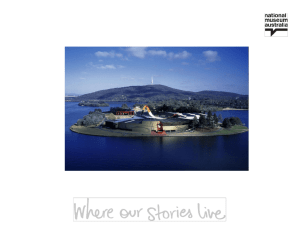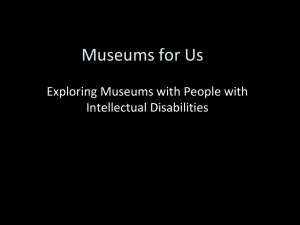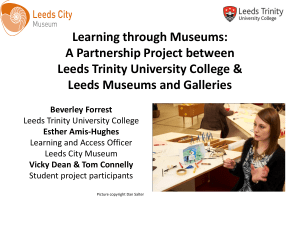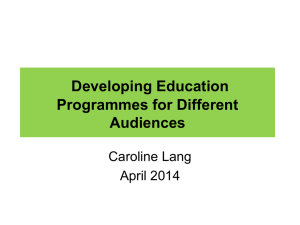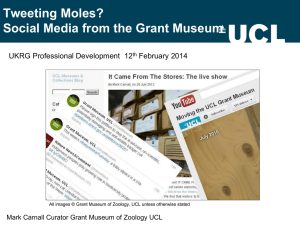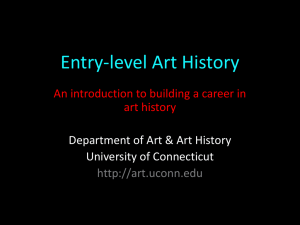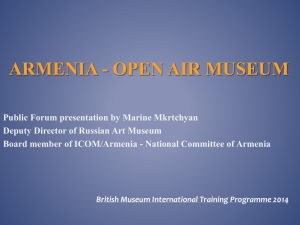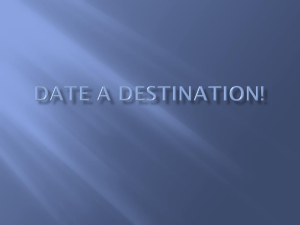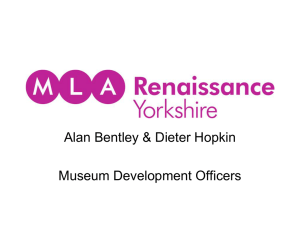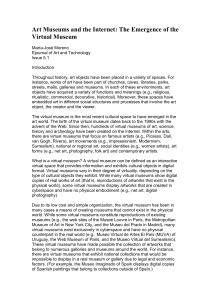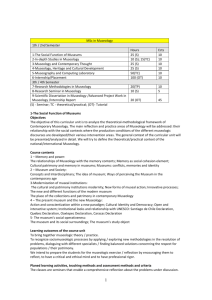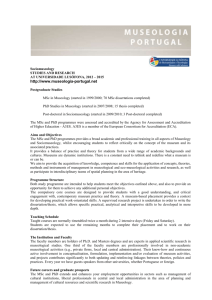Ms. Irene Salerno - CIDEM - Swot Analysis based on questionnaires
advertisement
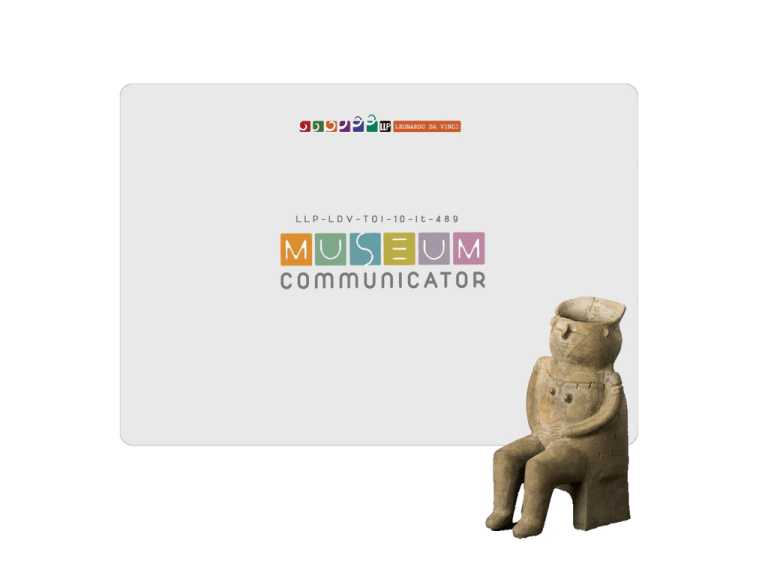
MU.COM. PROJECT SWOT ANALYSIS BASED ON QUESTIONNAIRES OUTCOMES Irene Salerno, CIDEM Start-up Meeting Rome, 3-4 February 2011 OVERVIEW The SWOT analysis has been realised in the frame of the Work Package 2 of the MUCOM Project so as to point out strengths, weaknesses, opportunities and threats of the starting Model for “Museum Communicator”. OVERVIEW The analysis is based on the results of a preliminary research report – that will be soon available on the Project website- made through questionnaires. OVERVIEW ON QUESTIONNAIRES RESULTS Questionnaires have been focused on a set of questions, aimed at investigating: WHO WE ARE: characteristics of the Institutions involved in the project and evaluation of their communicational power WHAT WE ARE STARTING FROM: Evaluation and pertinence of the starting Model proposed for developing the Course for “Museum Communicator” WHERE ARE WE GOING TO: Indications about strategies, specific needs, possible criticalities related to the transfer of the F-MU.S.E.U.M. Model and the development of a Course for “Museum Communicator”. OUTCOMES ….about the Partnership: Museums and communication The Museums concerned have in their staff 1 to 4 people in charge for the internal and external communication. These resources are mainly specialised in Journalism, PR or Museology. OUTCOMES ….about the Partnership: Museums and communication Personnel working as “Communicators” within the Partner Museums are usually working in Press Offices of the concerned Institutions, sometimes coordinating their activities with the IT Department. OUTCOMES ….about the Partnership: Museums and communication Some of the Partners have a specific experience in the field of Museum Communication: the Brukenthal Museum and the Jordan Ivanov Museum participated into specific training actions developed within the F-MU.S.EU.M. Project (e-course for “Virtual Museum Communicator”). Furthermore, as we just heard they both have training strategies and plans. OUTCOMES ….about the Partnership: Universities and other subjects Apart from Museums, some of the other Institutions involved in the Project had developed, previously, innovative pilot experiences related to Museum Communication: EUROINNOVANET has been leading the F-MU.S.EU.M. Project in the frame of which an e-course for Virtual Museum Communicator has been realised; OUTCOMES ….about the Partnership: Universities and other subjects The Lucian Blaga University has developed, in the frame of the post-graduate Master programme, two courses, “Communication in social field” and “Patrimony theory”. Furthermore, the University is currently offering a graduate course in “Museology” (third year). EVALUATION OF THE STARTING MODEL The evaluation of the Starting Model has been positive. The proposed communication strategy as well as the core competences of museum communicator have been regarded as effective and well focused, usable both for real and Virtual Museums. RECOMMANDATIONS TO DEVELOP THE STARTING MODEL According to questionnaires outcomes, the development of the starting Model has to be aimed at increasing Museums visibility, attracting more visitors and empowering the educational mission of Museums, thus contributing to people’s personal development, especially for the young people. MUSEUM COMMUNICATION FOR…. … helping Museums to better approach the public and the media by increasing their communicational power and assuring the quality of their communicational strategies ... promoting the image of the concerned Museums ...enlarging the number of Museums visitors MUSEUM COMMUNICATION FOR…. ...increasing Museums educational role ...increasing the links between the beneficiary Museums and the local cultural shareholders ...increasing social consciousness on the importance of protecting and preserving the cultural, historical and natural Heritage ...promoting local tourism SWOT ANALYSIS ….SOME KEY ISSUES KEY ISSUE n. 1 Priorities Museum Communicator for….: A. Communicating with the large audience B. Communicating with the mass media C. Communicating with the networks of territorial actors D. Empowering the educational role of Museums (what target?) KEY ISSUE n. 2 What course? A. For whom? (Students or Museums employees?) B. What will give? (is it possible to think to a final certificate recognised at the partnership international level? ) KEY ISSUE n. 3 Couse identity A. B. What kind of course A high-level professional training course? A post graduate Master? Based on which multimedia? Training needs: what basic subjects/ modules should be included? THE END
